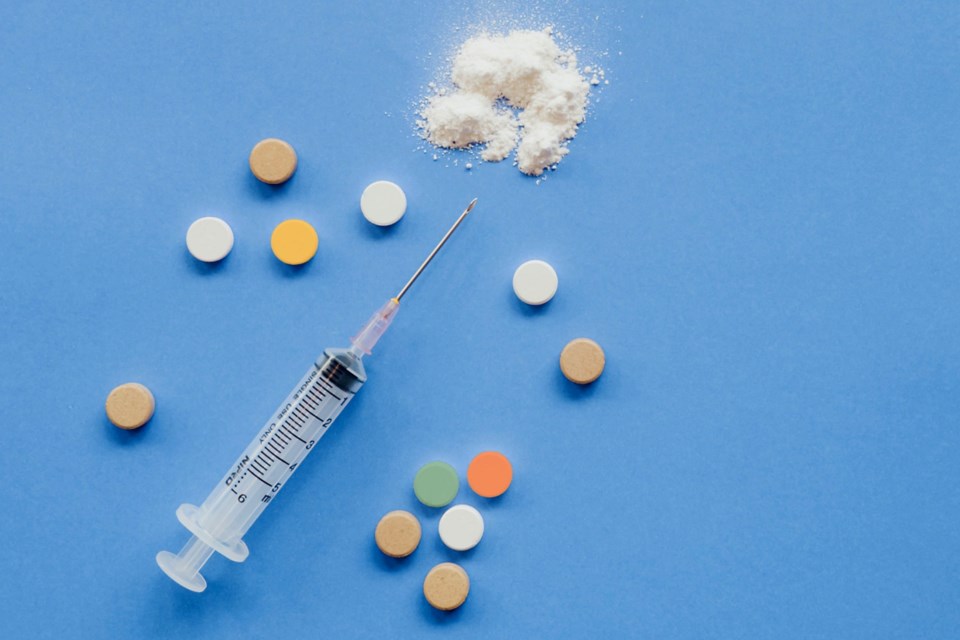A new study in the Canadian Medical Association Journal (CMAJ) said that providing safe drug substances to addicted drug users might be a solution to the growing number of overdose deaths from the toxic and unregulated supply of street drugs.
The study reports that there are safer alternatives available in Canada that provide substance users with a "flexible safe supply program that provides several medication options, including fentanyl, and is integrated with other health care and social services."
The report is authored by Sukhpreet Klaire, Christy Sutherland, Thomas Kerr and Mary Clare Kennedy, a group of physicians and researchers affiliated with the University of British Columbia (UBC) in Vancouver, and at UBC Okanagan in Kelowna. Details of the study were released Monday, May 16.
"Between January 2016 and June 2021, 24,626 people died from opioid toxicity in Canada. A key driver of this ongoing public health crisis has been the infiltration of illicitly manufactured fentanyl and other dangerous adulterants into the unregulated drug supply," said the study. Newer numbers released from Health Canada show the death count at almost 27,000 in that five-year period.
Health Canada also revealed that overdose death rates increased in several jurisdictions. So far in 2021 (January – September), 88 per cent of all accidental apparent opioid toxicity deaths occurred in British Columbia, Alberta, or Ontario.
The medical study said one of the key issues in "this ongoing public health crisis" has been the fact that criminal drug makers and street dealers have infiltrated the illegal drug supply with fentanyl and other dangerous substances.
It said that official interventions and efforts to educate drug users have not been sufficient and the number of overdose deaths continues to rise.
The study said "this reality has prompted calls for the provision of a legal and regulated source of psychoactive substances, known as ‘safe supply,’ particularly low-barrier, flexible options that meet the diverse needs and goals of people who use drugs.”
This position is similar to one stated by harm reduction advocates just last month in Sudbury.
The CMAJ study made reference to the SAFER program in Vancouver, which has been in operation since April 2021.
"Safer Alternatives for Emergency Response (SAFER) is a low barrier, flexible safe supply program that provides several medication options, including fentanyl, and is integrated with other health care and social services,” said Health Canada.
The study said SAFER is operated by a nonprofit organization (PHS Community Services Society) in partnership with Vancouver Coastal Health, and is funded through Health Canada’s Substance Use and Addiction Program.
While critics might argue the program does not help to get users away from drug use, SAFER's primary goal is to reduce the risk of overdosing on unknown substances. The study said SAFER is not necessarily trying to support abstinence.
The study said a scientific evaluation of SAFER, funded by Vancouver Coastal Health, will assess the effectiveness of the program as far as reducing risk of overdose and supporting access to care without generating unintended harm. The authors said a prospective cohort of about 200 participants is being established to provide baseline data, followed by semi-annual questionnaires over a two year period.
The study does not include a formal conclusion, but asks what might be expected in the future.
The study said although SAFER is initially operating only in Vancouver, similar safe supply programs have been implemented or are being considered in other Canadian settings.
Including SAFER, the study said Health Canada has funded 18 safe supply pilot programs since 2019. The study did not provide locations, but Health Canada said programs are underway in British Columbia, Ontario, Quebec and New Brunswick.
Health Canada said future research is expected to assess the different features and contexts of the programs in place and how effective they are.
"Given strong consensus among experts that safe supply is among the most promising measures to curb the drug poisoning crisis, it is critical to remove barriers to access, expand coverage, conduct rigorous evaluation and refine delivery approaches to maximize potential impacts," said the Health Canada website.
Len Gillis covers health care and mining for Sudbury.com.
